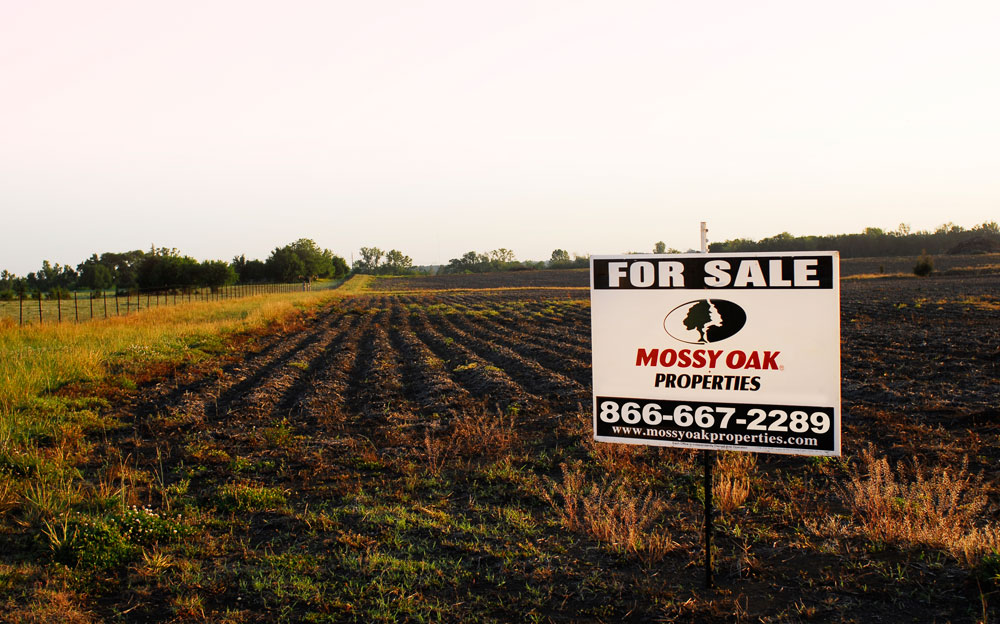Provided by Mossy Oak Properties

Rural land can be much more than just something you enjoy with your loved ones. Sometimes, Mother Nature contains valuable resources investors or companies are itching to get their hands on. Hence, mineral rights.
Also known as a mineral estate, mineral rights are just what their name implies: The right of the owner to utilize minerals found below the surface of property. Besides minerals, these rights can apply to oil and gas. Interestingly, mineral rights can be separate from actual land ownership. This can lead to some unique challenges when buying land.
Potential difficulties presented by mineral rights
One important factor you must keep in mind is that if real estate contains mineral rights, simply buying the property doesn't make you the owner of them. Since mineral rights can be sold separately from the land itself, even if you own the land, someone else may hold ownership of what's below it.
And because of the intrinsic value of what's below the surface, the land itself may come with a price tag much higher than otherwise seen in the area.
"Like other types of real estate, mineral estate values are also affected by the real estate adage location, location, location," said Brian Bauer of Mossy Oak Properties Bauer Real Estate Company in Carroll, Ohio. "Here in Ohio, we have a large shale play happening. Minerals in certain counties can be worth 10 times the value of the surface tract they lay under. If someone is looking to purchase land in a certain area to build a home, start a farm or for recreational purposes, they may not be able to even afford the property because of the market value of the underlying minerals."
For many people, the land itself is a secondary concern to what can be found beneath its surface.
"We see many properties purchased with the mineral rights conveying to the buyer (usually a mineral investor) then that buyer immediately resells the surface tract," Bauer continued.
Meanwhile, individuals who just want the land will need to contend with the rights of whoever owns the mineral estate.
"Folks who purchase properties without the mineral estate often have a lot of questions about what the mineral owners can and cannot do to harvest their minerals," Bauer said. "Oftentimes when a property is sold with a mineral reservation, there is already a pre-negotiated oil/gas lease in place that contains language allowing the mineral owner or oil/gas company to harvest the minerals from the overlying surface tract."
Using the Utica and Marcellus shale formations in Ohio as an example, Bauer spotlighted how the large shale wells in these areas can consist of 300- to 1,000-acre drilling units, with shale well pads taking up to 20 acres of surface land, not including water impoundments, pipelines and compressor stations. In short, the rights of mineral estate owners can significantly impact your land.
It's for this reason that some buyers avoid land that features mineral rights, or refuse to purchase property unless they become the owners of the mineral estate as well. However, even if mineral rights are included with the purchase of the property, there may already be an existing lease or partial reservation in place that the owner will be subject to.

Depending on due diligence
Proper research and careful planning are always important when investing in land, but that goes doubly so when mineral rights are involved.
"I would advise a buyer that is looking at land that features mineral rights to do their due diligence to determine what mineral rights they are actually getting," Bauer said. "Good advice would be to find a local attorney that deals with mineral rights and knows the mining and drilling activity in the area."
Determining whether a parcel of land featuring mineral rights is the correct decision for you often comes down to weighting the pros and cons.
For instance, higher initial costs and potential complications must be measured against the possibility of future profit.
"Determining the facts about a property's mineral title can be a costly endeavor," Bauer continued. "A mineral search at the local courthouse records office can be very expensive to have done. Also, title insurance no longer insures the mineral estate to a property. On the other hand, it can be very profitable to own a property with mineral rights in a desirable oil/gas area. I personally know landowners who have received hundreds of thousands of dollars for oil/gas lease bonus money and royalties."
At the end of the day, you must ask yourself: Why am I buying land? Are you looking to own a slice of property you can use for hunting, camping or other outdoor activities? Or are you searching for farm land you can use to grow crops and raise livestock?
Mineral rights can interfere with these endeavors, but they can also make your land much more valuable. So if your main goal is simply to invest and turn a profit, mineral rights may have much to offer.
Regardless of your overall plans, keep in mind that the complex ins and outs of mineral rights make it more important than ever to work with an experienced land specialist. Whether you're after hunting property for sale or a strategic investment, working with knowledgeable brokers can make all the difference.



























